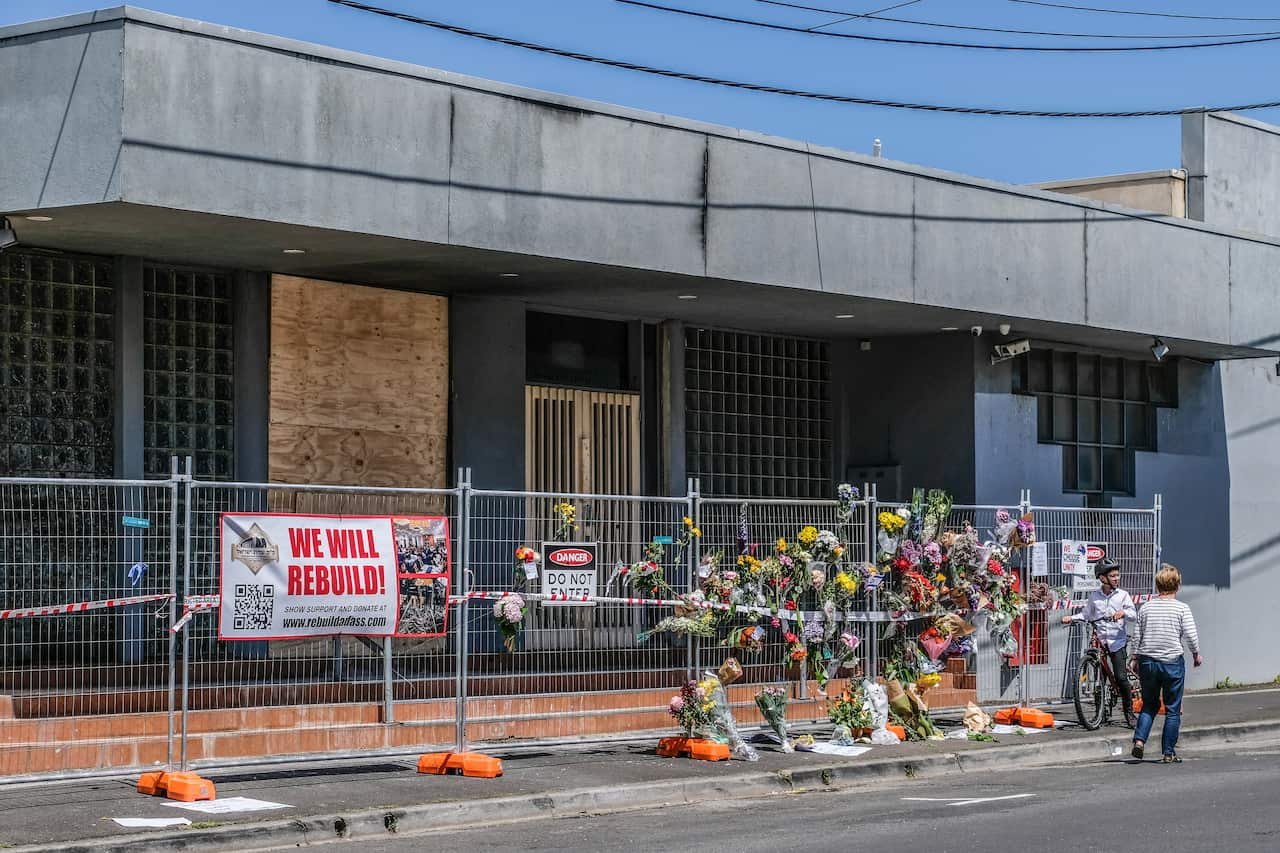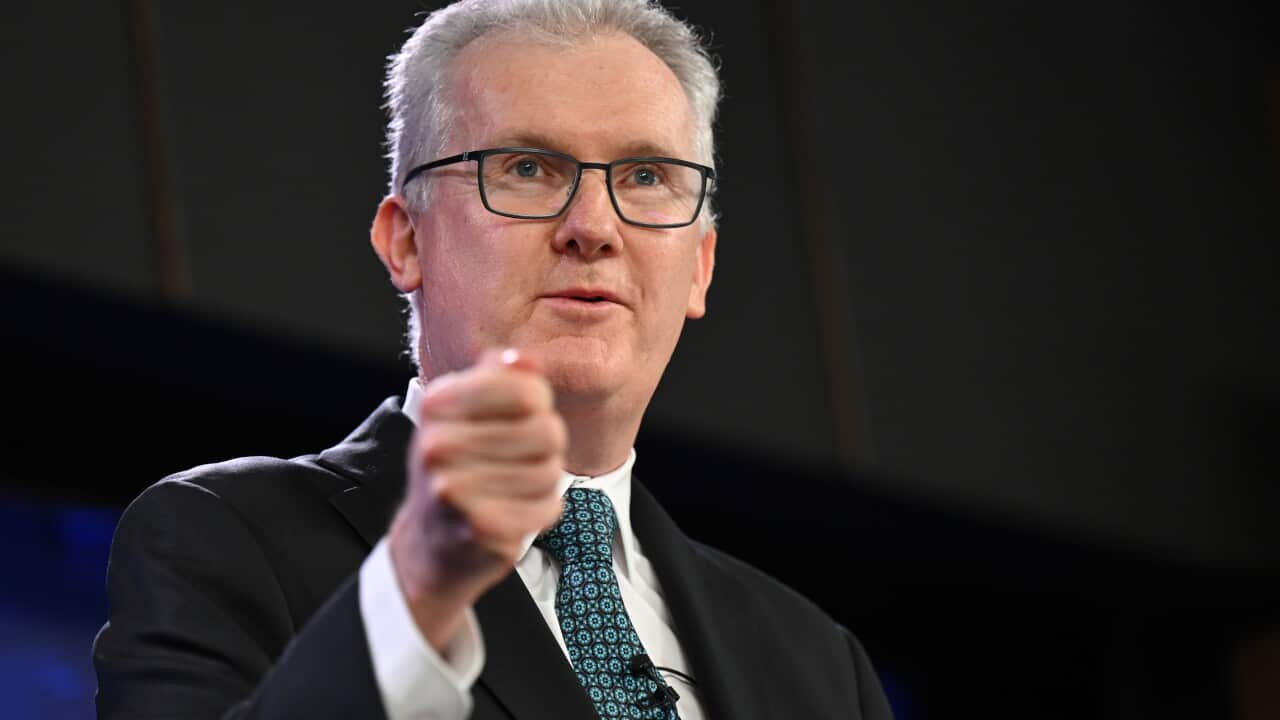Home affairs minister Tony Burke has said the Australian government acted on its own intelligence assessments, as Israel's intelligence agency named an alleged Iranian official behind antisemitic attacks in Australia.
Mossad and the office of Israeli Prime Minister Benjamin Netanyahu released a statement on Monday AEDT, saying Sardar Amar, who they identified as a senior commander in Iran's Revolutionary Guard Corps (IRGC), was the mastermind behind antisemitic attacks in Australia last year — via a network of recruited criminals and secret communications.
"Under Amar's command, a significant mechanism was established to promote attacks against Israeli and Jewish targets both in Israel and abroad," the statement read.
The statement shed further light on revelations from August that the Australian Security Intelligence Organisation (ASIO) had received "credible intelligence" on the involvement of the IRGC in two attacks described as antisemitic by authorities, on a kosher kitchen in Sydney and a synagogue in Melbourne.
Home Affairs Minister Tony Burke said in a statement to SBS News that Iran's behaviour was "disgraceful", but stressed the Australian government made decisions "on the basis of intelligence assessments by our agencies".
"Iran's behaviour was disgraceful. That's why we expelled the ambassador and are introducing legislation which would create the power to list organisations connected to a government as a terrorist organisation," he said.
Mossad also alleged Amar was directly responsible for antisemitic attacks in Greece and Germany, using the same tactic of employing local networks to provide "terror without Iranian fingerprints".
Who is Sardar Amar?
Israel alleges Amar is a senior commander in the Quds Force, the covert overseas arm of the IRGC.
The Australian government is in the process of listing the IRGC as a terrorist organisation in Australia.
"Sardar" can be roughly translated to "leader" and is a common name in Iran. It is often used in the IRGC to denote a senior rank.
An organisational chart of alleged commanders of the Quds Force — the IRGC's clandestine wing — published alongside Mossad's statement, included an image of Amar.
Mossad accused the Quds Force of operating separately from the Iranian government to maintain "plausible deniability and separation between the violent activity and Iran".
Amar's exposure, it said, was a major blow to Iran's covert operations.
"The first time exposure of Sardar Amar's attack mechanism as being behind the attempted attacks in Greece, Germany, and Australia proves the failed management of the mechanism in its efforts and undermines the Iranian attempts to operate covertly, beneath the radar," the statement read.
'A forthright intervention'
The Iranian ambassador to Australia was expelled in August following ASIO's initial revelations of Iranian involvement in two antisemitic attacks.
David Mencer, an Israeli government spokesperson, addressed a press conference in August, claiming Australia's decision was the result of Netanyahu's "forthright intervention".
"For the Australian government to take those threats seriously is a positive outcome, it is, of course, a matter for the Australian government the actions they take, but be in no doubt the government of Iran are a wholly negative influence on world affairs," he said.
At the time, Burke dismissed claims Israel was "taking credit" for the intelligence, telling ABC Radio the idea was "complete nonsense".
"We've taken this action because Iran has attacked Australians. No other country is involved in terms of that conclusion. That's something Iran has done," he said at the time.

Both antisemitic incidents took place in late 2024. The first was at Lewis' Continental Kitchen in Sydney's Bondi on 20 October, and the second was the firebombing of the Adass Israel Synagogue in Ripponlea, Melbourne, on 6 December.
In a press conference in August, ASIO director-general Mike Burgess described the planning of these attacks involving a "layer cake of cutouts" between the IRGC and the alleged payment of the perpetrators.
"The IRGC used a complex web of proxies to hide its involvement," Burgess said.
"In between them, they tap into a number of people, agents of the IRGC and people they know in the criminal world, and work through there."
The initial revelations marked the first time Australia had expelled an ambassador since World War Two. At the time, Iran's foreign ministry spokesperson rejected the accusation and vowed to take "a reciprocal reaction".
For the latest from SBS News, download our app and subscribe to our newsletter.

